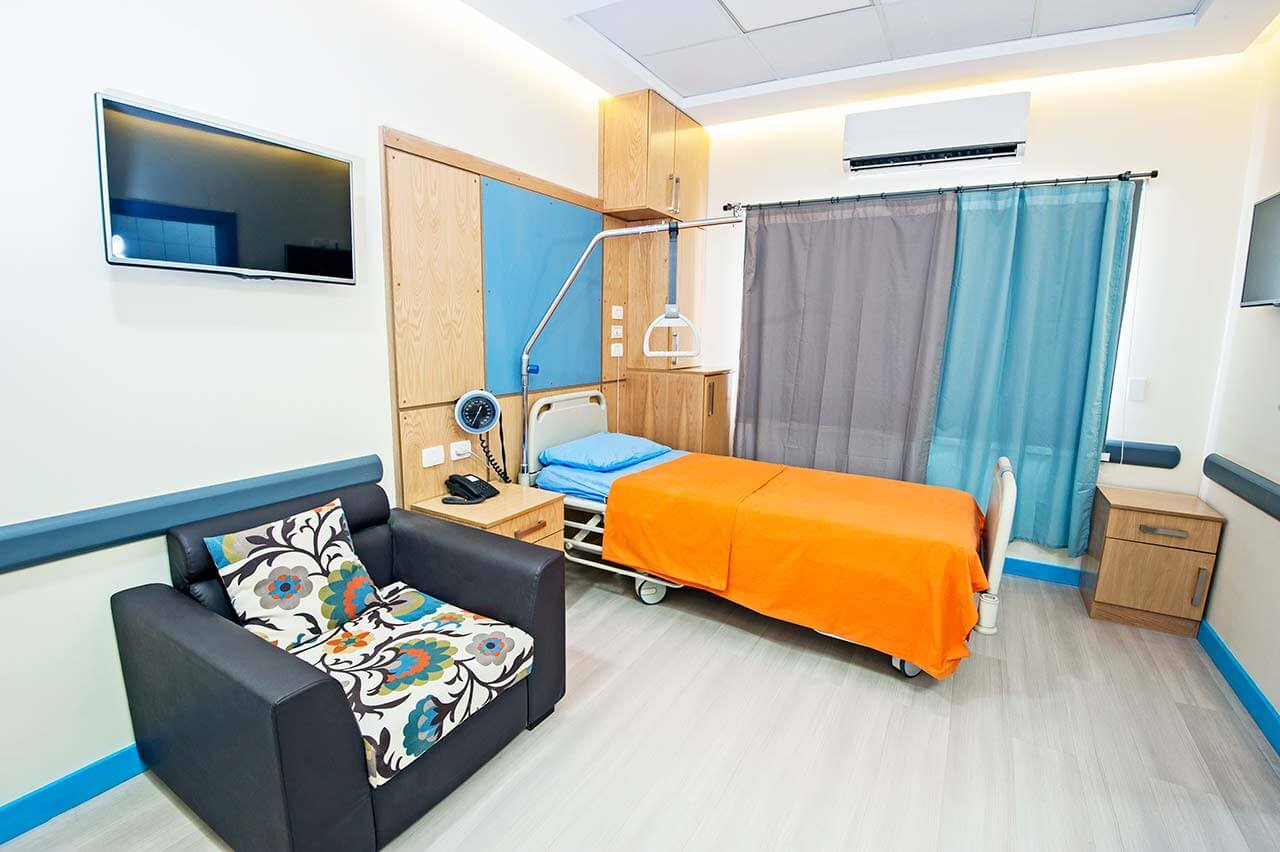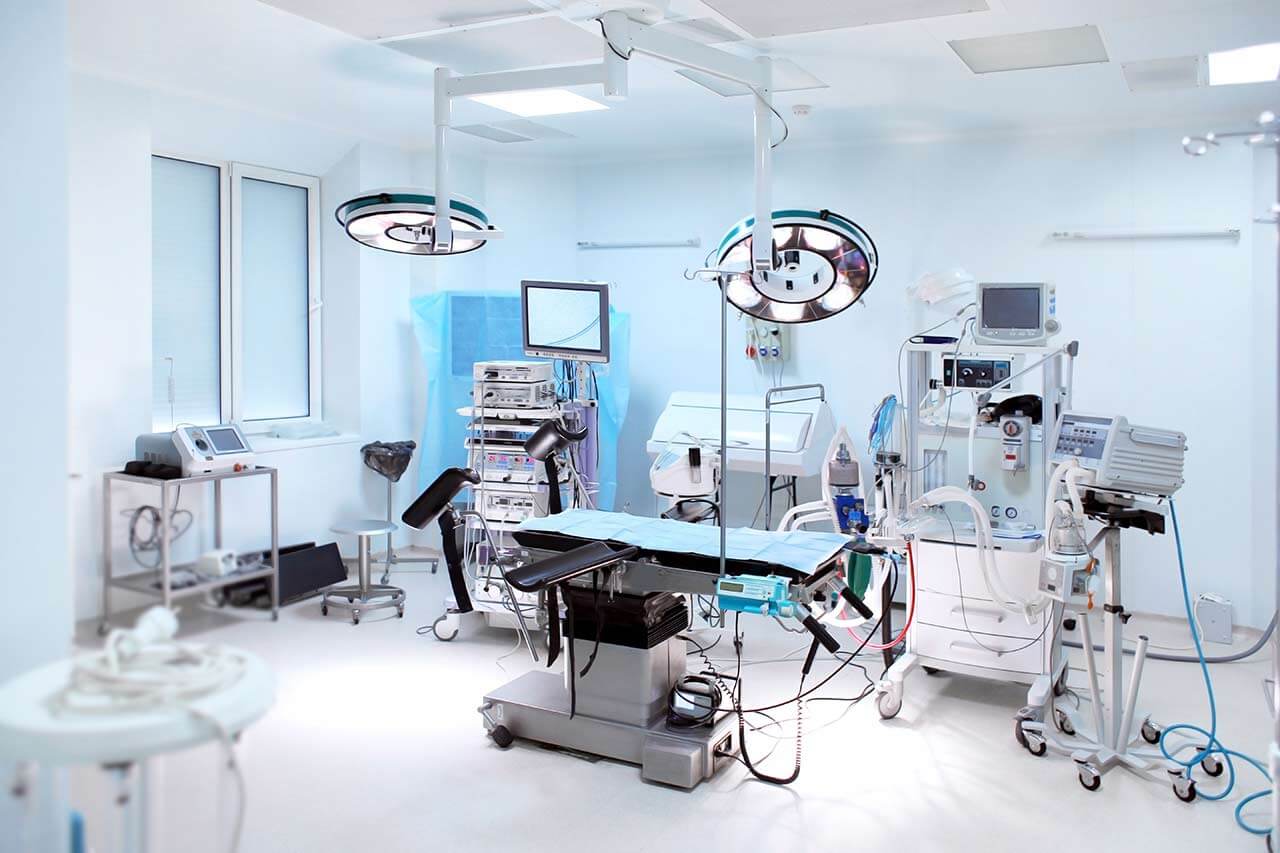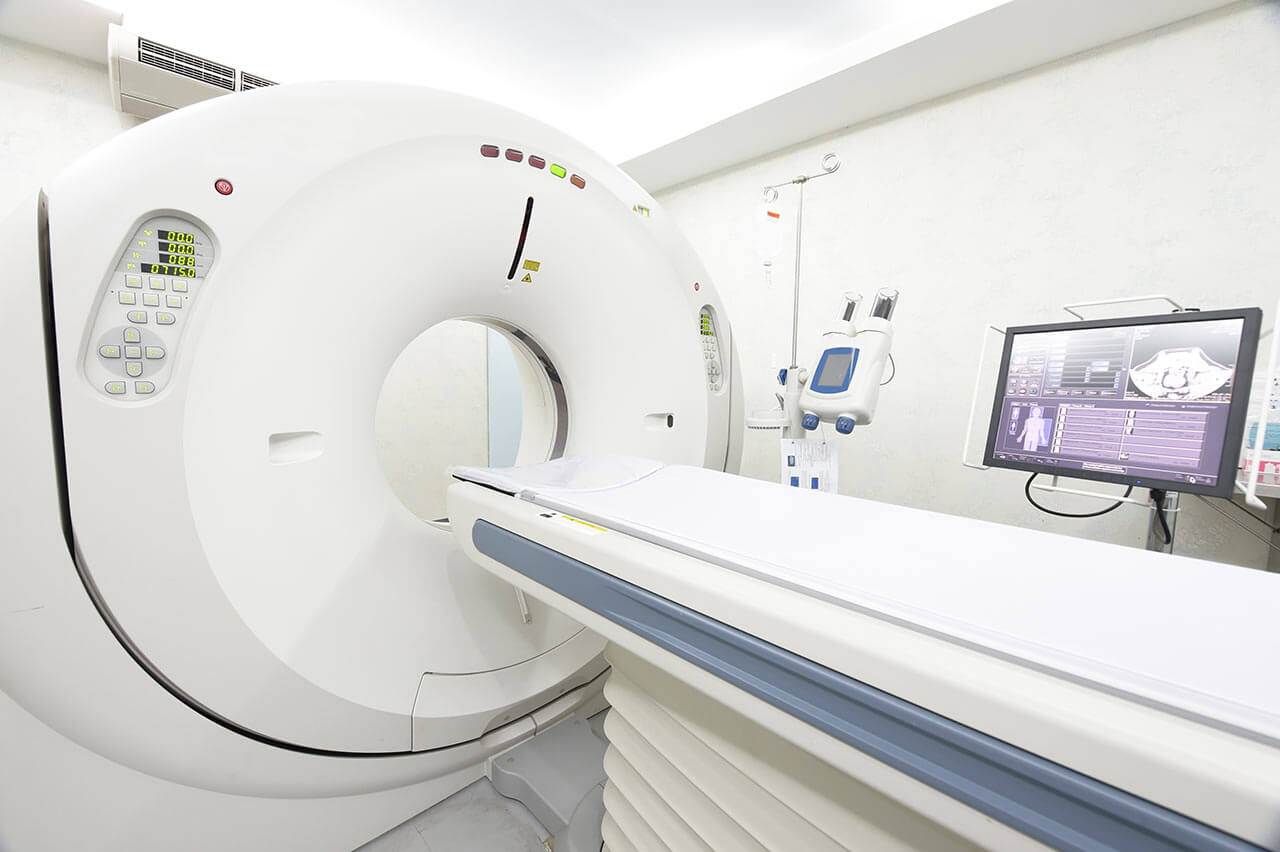
About the Department of Neuroradiology at University Hospital Carl Gustav Carus Dresden
The Department of Neuroradiology at the University Hospital Carl Gustav Carus Dresden offers the full range of imaging diagnostics and minimally invasive image-guided therapy for patients with nervous system diseases. The department's medical team specializes in care for pathologies of the brain, spinal cord, peripheral nerves and muscles. The department has state-of-the-art systems for computed tomography (CT) and magnetic resonance imaging (MRI), which provide doctors with information about the structure and functioning of the nervous system, as well as its metabolic processes. The department's therapeutic options include catheter-based procedures for the treatment of acute and chronic pathologies of the vessels of the brain and spinal cord. The department's specialists cooperate closely with neurologists and neurosurgeons. In especially complex clinical cases, the doctors of these medical fields gather for a board to develop the most effective, but at the same time sparing treatment regimen. The department is certified in accordance with the requirements of the German Society of Neuroradiology (DGNR), so patients can count on top-class medical care with the use of the very latest medical advances. The Head Physician of the department is Prof. Dr. med. Jennifer Linn.
It is no secret that accurate diagnostics is the key to successful treatment of any disease. The department has modern diagnostic rooms for comprehensive diagnostics of the nervous system. Patients can undergo the full range of imaging tests here: computed tomography, magnetic resonance imaging, perfusion computed tomography, functional magnetic resonance imaging, magnetic resonance spectroscopy, catheter angiography, myelography, classical radiography and other tests. The necessary test or their set is prescribed by the doctor, based on the patient's anamnesis and his complaints. Prior to any of the above mentioned tests, the patient receives recommendations for preparation so that the result is as informative as possible.
In addition to diagnostics, the department performs a variety of image-guided interventional therapeutic procedures. Such treatment is an excellent alternative to neurosurgical intervention, after which a long recovery is required. One of the primary focuses of the department's specialists is mechanical thrombectomy for stroke treatment. The procedure is an endovascular removal of a blood clot that disrupts cerebral blood flow. The best results with mechanical thrombectomy are achieved within the first 6 hours after symptom onset. The procedure is performed using anesthesia or sedation. A special catheter is inserted into the femoral artery and then directed to the carotid artery through the aorta. At this stage, the doctor performs the necessary therapeutic manipulations to remove the blood clot. Before mechanical thrombectomy, CT or MRI scanning is mandatory in order to assess the patient's condition and the feasibility of this therapeutic manipulation.
The department also successfully deals with the treatment of brain aneurysms. In some cases, there is no need for any therapeutic procedures to remove the aneurysm, and the patient is recommended to be monitored over time. If the patient still requires brain aneurysm repair, the department's specialists consider the option of performing endovascular coiling. The procedure is performed under general anesthesia and with angiography guidance. A flexible catheter is inserted through the femoral artery in the groin and directed to one of the arteries in the neck that lead to the brain. A special dye is injected into the cerebral vessels to imagine them on the screen. After the catheter reaches the aneurysm, a thin platinum coil is inserted into the aneurysm, which fills the aneurysm and reduces the risk of its rupture. The coil stays inside the aneurysm permanently. After the procedure, the patient remains under monitoring in the intensive care unit for several days, after which he is discharged.
Another popular therapeutic manipulation is endovascular repair of carotid artery stenosis that may provoke a stroke. The essence of the procedure is the placement of a special stent into the carotid artery, which helps the patients to restore normal blood flow and significantly reduce the risk of developing cerebral hemorrhage. The endovascular procedure is also performed under image guidance.
The department's range of medical services includes:
- Diagnostics
- Magnetic resonance imaging (MRI)
- MR angiography
- Diffusion-weighted magnetic resonance imaging
- Susceptibility-weighted imaging (SWI)
- MR spectroscopy
- Functional MRI
- Computed tomography (CT)
- CT angiography
- CT perfusion
- 3D CT reconstruction
- Diagnostic catheter angiography
- Myelography
- Classic X-ray examinations
- Magnetic resonance imaging (MRI)
- Treatment
- Mechanical thrombectomy for stroke
- Coiling for brain aneurysm
- Endovascular treatment of arteriovenous malformations
- Endovascular treatment of dural arteriovenous fistulas
- Carotid artery stenting for stroke prevention
- Tumor embolization (especially in the head and neck area)
- CT-guided interventional procedures for back pain
- Periradicular therapy
- Infiltration therapy
- Therapy for cerebrospinal fluid leak (liquorrhea) (blood patch procedure)
- Other diagnostic and therapeutic options
Curriculum vitae
Prof. Dr. med. Jennifer Linn studied human medicine at the Saarland University and the Free University of Brussels. Jennifer Linn defended her doctoral thesis at the Institute of Neurology of the Technical University of Munich. Habilitation for hemorrhagic stroke followed in 2010 at Ludwig Maximilian University of Munich.
Since October 9, 2014, the Professor has been heading the Department of Neuroradiology at the University Hospital Carl Gustav Carus Dresden. Prior to that, the Professor held the position of Senior Physician in the Department of Neuroradiology and the position of Head of the Research Unit at the University Hospital of Ludwig Maximilian University of Munich. Dr. Linn specializes in the early diagnostics of various forms of stroke. Of particular interest to her are microangiopathies – lesions of the small vessels of the brain, which in many cases can provoke stroke in the elderly, causing hemorrhages and acute cerebrovascular accidents. The head of the department has repeatedly received scholarships from the German Research Foundation. Her accomplishments also include the Kurt Decker Award of the German Society of Neuroradiology and the title of Invited Professor in the Department of Neuroradiology at Johns Hopkins University in Baltimore.
Photo: (с) depositphotos





